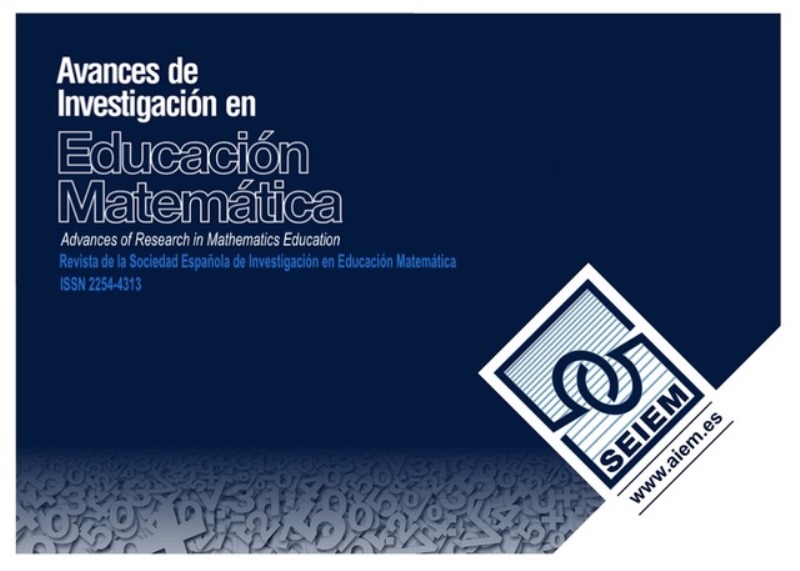Analysis of School Mathematics discourse on textbooks, a view from Socioepistemological Theory
DOI:
https://doi.org/10.35763/aiem.v1i8.123Keywords:
Knowledge problematization, School Mathematicsdiscourse, Knowledgeuses, The trigonometric, Socioepistemology and text analysisAbstract
This paper presents an example of textbooks analysis for mexicansecondary education, for trigonometry teaching in particular. Our research framework, the Socioepistemological Theory of Mathematics Education, states the social practices as the foundational base of specialized knowledge. We discuss the knowledge problematization rol, as historicizing and dialecticizing, through the notion of “practices nesting” for the trigonometric construction (relative to its use).With several concrete and useful examples, in order to theorize about the absence of meaning in students, produced by an education focused on mathematics objects.After that, we derive from there, intervention proposals for an extended classroom based on epistemologies of practices.
Downloads
Downloads
Published
How to Cite
Issue
Section
License
The articles published in this journal are under a license Creative Commons: By 4.0 España from number 21 (2022).
Authors who publish with this journal agree to the following terms:
- Authors retain copyright and keep the acknowledgement of authorship.
- The texts published in this journal are – unless indicated otherwise – covered by the Creative Commons Attribution 4.0 international licence. You may copy, distribute, transmit and adapt the work, provided you attribute it (authorship, journal name, publisher) in the manner specified by the author(s) or licensor(s). The full text of the licence can be consulted here: http://creativecommons.org/licenses/by-nc/4.0.
- Authors are able to enter into separate, additional contractual arrangements for the non-exclusive distribution of the journal's published version of the work (e.g., post it to an institutional repository or publish it in a book), with an acknowledgement of its initial publication in this journal.
- Authors are permitted and encouraged to post their work online (e.g., in institutional repositories or on their website) prior to and during the submission process, as it can lead to productive exchanges, as well as earlier and greater citation of published work (See The Effect of Open Access).









